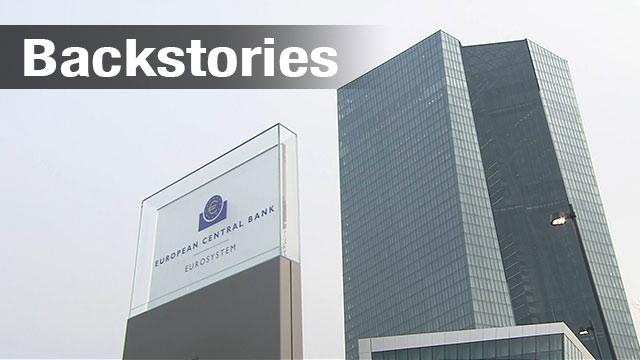Not only did the ECB lower its 2019 growth projections from 1.7% to 1.1%, it also announced it would keep its negative interest rates as they are until at least the end of the year (the original plan was to keep the rates the same through the summer). The bank also approved the launch of a third tranche of cheap loans known as TLTRO (Targeted longer-term refinancing operations) to Eurozone financial institutions in an effort to boost lending to businesses.
The ECB has been trying to wrap up its vast economic stimulus program since the end of last year. But in reversing course, at least for now, Draghi notes that risks are still tilted to the downside, even with the new stimulus measures in place. China’s slowdown has been casting a shadow over Europe, with Germany recording zero percent growth and Italy marking negative growth for the past two quarters.

And it’s not only the ECB that’s shifting monetary policy. The US Federal Reserve announced earlier this year that it would likely refrain from hiking interest rates at the initially expected pace. Chair Jerome Powell told lawmakers he would soon announce a plan to stop shrinking the $4 trillion balance sheet on the back of growing risks. Donald Trump’s trade war with China has been gradually weighing on exports, while the President himself blames the Fed, saying the “dollar is too strong” and that previous rate hikes have been hampering the economy.

Here in Japan, analysts are increasingly doubtful of the government’s claim that the country is currently going through its “longest economic expansion” period. The government recently downgraded its assessment of a key indicator of economic trends, suggesting the country may already be entering a recession. China’s deteriorating consumption seems to be leaving its mark here as well. And the Bank of Japan, with ultra-low interest rates already in place, has little room for further monetary easing.

As things stand, central bankers in Japan, the US, and Europe are facing the same challenge: an economic slowdown that is at increasing risk of turning into a full-blown global recession. And if things get worse before the banks manage to finish rolling back the stimulus measures they put in place following the global financial meltdown a decade ago, they will not be equipped with the adequate tools to deal with such a crisis.
The buzzword coming from the banks at the moment seems to be "patience". "We’re in a place where we can be patient and flexible and wait and see what does evolve," said Powell recently. "And I think for the meantime we’re waiting and watching.”
The ECB and the Fed may be doing more than just watching and waiting, but policymakers will certainly have their patience tested as the current economic oscillation is expected to continue for some time.

